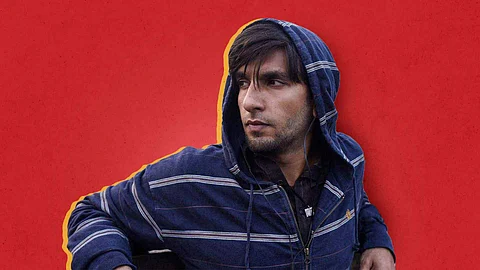
- Reviews
- Power List 2024
- Cannes 2024
- In-Depth Stories
- Web Stories
- News
- FC Lists
- Interviews
- Features
- FC SpecialsFC Specials

I have really enjoyed Zoya Akhtar’s movies. Whether it’s the insider’s gaze on the film industry portrayed in Luck By Chance, the ‘sensitive portrayal of masculinity’ in Zindagi Na Milegi Dobara or the chaotic family relations in Dil Dhadhakne Do. What’s different about her more recent, Gully Boy is that Zoya portrays a class group that she is not familiar with as a child of a celebrated personalities of Bollywood. All her earlier films have been about upper-middle class or upper-class persons while this one looks into the lives of the lower class. I believe her unfamiliarity with the class group is the reason behind the comparative lack of nuance in the portrayal of her character’s struggles. Through this paper, I attempt to explore this lack by contrasting the radical and anti-establishment music of Gully Boy with the story of the movie as a commentary on classism. For this I closely listen to the film’s soundtrack and refer to its deleted scenes.
Class is ever present in Gully Boy. Whether it is in the lack of space in Murad’s home which becomes a tourist spectacle, in the spaces that characters inhabit while romancing, in their clothes including the Adidas t-shirts that Murad wears that are declared fake, in the expectation of him being a peddler because of where he lives, in the breakfast tray that looks jarringly different from the food consumed by any characters in the film and in the spaces that he hangs out in with his friends as opposed to the spaces that his employers hang out in, amongst others. One of the most striking scenes that denotes the distance between lives and classes while inhabiting a proximate space is the conversation the Murad’s employers have with their daughter where they are trying to explain to her that being a graduate means nothing as they ask Murad about his qualifications in Hindi and state that ‘everyone’s a graduate today, do you want to be on the same level as him?’ Here, they belittle his job and achievements on which their celebrations and everyday lives depend while rendering him invisible in the conversation. It’s almost as if education being an equalizer is dreaded which is why an elite foreign college is a marker of superiority. Another interesting scene is where Murad calls out Moen for using children for peddling drugs. Moen fights back arguing that I put a roof over their head and feed them, fight those that leave them to rot in garbage bins. Here, we’re given an opportunity to think about choosing bad from worse in a helpless situation.
Keeping these scenes in mind, I appreciate the movie for portraying relatively realistic lives of slum dwellers. Hence, when I say that the struggle of the characters lacks nuance, I don’t mean that the characters are one dimensional in any way. My issue lies in largely depicting class as yet another obstacle that can eventually be overcome by talent, determination and hard work thereby undermining the impact of structural inequality.
What’s interesting is that in contrast to the story’s arc, some of the music of the movie does an excellent job of attacking, highlighting, and questioning the trials of such structural inequality and the role of the government in perpetuating the same. Jingostaan’s attack on the use of jingoism by the current regime to silence dissent, Doori’s questioning of deepening class divide due to capitalism and wealth accumulation or Azadi doing both these things and exposing corruption, are all examples. Additionally, in the garb of class, attacking caste has been a missed opportunity even though it lurks around the trope of a driver’s son having to become a driver and the consistent mentioning of aukaat. Kanhaiya Kumar’s Azadi slogan’s original lyrics that were a cry against Bhramanwaad, Manuwaad, Punjiwaad and Samantwaad are reduced to Bhukhmaari, Bhedbaav, and Pakshpat, thereby sanitizing the narrative of caste. In this context, Moen’s character does better but still ends up justifying that education equals opportunity and is a ticket to a better life. Hence, in Gully Boy’s world, while a Murad can become a success story owing to his relative privilege, Moen’s of the world are expected to resign to their faith. What becomes of them and what does their anger, their struggle and their success story look like?